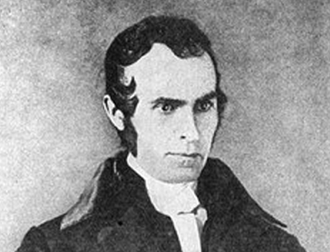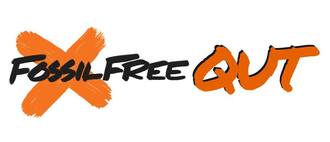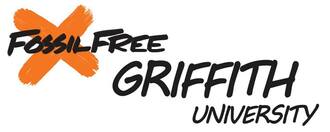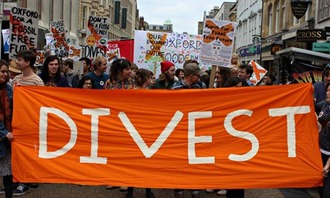-
Divest Washington & Lee University from Fossil FuelsClimate change is accelerating. We are witnessing the increasing impacts of a warming planet more and more consistently; in this last year alone our country experienced record-breaking heat, droughts, and hurricanes, which impacted hundreds of thousands of people and cost our country hundreds of billions of dollars. Hurricane Sandy alone caused $50 billion in damages. Experts agree that global warming caused by humans burning fossil fuels will continue to accelerate and intensify these tragic climate disasters. The scientific consensus is clear and overwhelming; we cannot safely burn even half of global fossil-fuel reserves without dangerously warming the planet for several thousand years.12 of 100 SignaturesCreated by James McCullum
-
Divest World Learning From Fossil FuelsClimate change is accelerating. We are witnessing the increasing impacts of a warming planet more and more consistently; in this last year alone our country experienced record-breaking heat, droughts, and hurricanes, which impacted hundreds of thousands of people and cost our country hundreds of billions of dollars. Hurricane Sandy alone caused $50 billion in damages. Experts agree that global warming caused by humans burning fossil fuels will continue to accelerate and intensify these tragic climate disasters. The scientific consensus is clear and overwhelming; we cannot safely burn even half of global fossil-fuel reserves without dangerously warming the planet for several thousand years.157 of 200 SignaturesCreated by Caitlyn Clark
-
Help Ashford University Go Fossil Free!Climate change is accelerating. We are witnessing the increasing impacts of a warming planet more and more consistently; in this last year alone our country experienced record-breaking heat, droughts, and hurricanes, which impacted hundreds of thousands of people and cost our country hundreds of billions of dollars. Hurricane Sandy alone caused $50 billion in damages. Experts agree that global warming caused by humans burning fossil fuels will continue to accelerate and intensify these tragic climate disasters. The scientific consensus is clear and overwhelming; we cannot safely burn even half of global fossil-fuel reserves without dangerously warming the planet for several thousand years.6 of 100 SignaturesCreated by Angela Hoover
-
Divest Whittier Law School From Fossil Fuels“At what point does a man turn into a monster? I don’t believe that it’s when he does horrible things, but when he accepts that he’s able to do them, and that he does them well.” ― John Greenleaf Whittier, Poet, Quaker, Abolitionist, and Whittier College and Whittier Law School's namesake. With the dire threat of climate change upon us, fragmented approaches to sustainability like recycling simply no longer give a twenty-first century educational institution the moral authority to boast of being sustainable. When we are invested in fossil fuels, we're not green. Having the capability and expertise in investing in fossil fuels, does not make our conduct any less monstrous. Of the thirteen colleges nationwide that have already made commitments to divest from fossil fuels, five are in California: Foothill-De Anze Community College Foundation, Peralta Community College District, Pitzer College, San Francisco State University Foundation, and Stanford University. Further, five California cities have also made commitments to divest: San Francisco, Berkeley, Richmond, Santa Monica, and Oakland. (As well as San Francisco County!) Our prayer is that the Whittier College Board of Trustees recognizes that our institution's noble commitment to sustainability is disingenuous if it includes investments in fossil fuels. Whittier College and Whittier Law School have an opportunity here to lead by joining the pioneering schools first to divest from fossil fuels. We all know this is the right side of history, so let's get on it already. Media inquiries: Curtis Morrison Vice President, Whittier Law School Environmental Law Society J.D. Candidate, Class of 2016, Whittier Law School [email protected] 502.403.949832 of 100 SignaturesCreated by Curtis Morrison

-
Die Uni Heidelberg soll sich zu einem klimafreundlichen Finanz- und Anlagemanagement bekennen.Begründung: Spätestens die Dürre dieses Sommers hat uns gezeigt, dass der Klimwandel mitten in Deutschland angekommen ist. Wir haben einen ersten Vorgeschmack bekommen, welchen Druck der Klimawandel auf unsere Landwirtschaft und Gesellschaft ausüben kann. Die extemen Unwetter häufen sich hierzulande genauso wie die "Jahrhundertstürme" an den Küsten Amerikas und Asiens. Allein für Deutschland rechnet die Münchener Rückversicherung bis 2050 mt 800 Milliarden Euro Klimafolgeschäden. Hunderte Millionen von Menschen in den Ländern des globalen Südens sehen das Land unter ihren Füßen durch die Ausbreitung der Wüsten und den Anstieg des Meeresspiegels bedroht. Die Weltbank beziffert die Anzahl der Klimaflüchtlinge bis 2050 mit 140 Millionen. Die internationale Staatengemeinschaft hat sich, um die katastrophalen Folgen eines noch gefährlicheren Klimawandels abzuwenden, 2015 in Paris verpflichtet, alles in ihrer Macht stehende zu unternehmen, um die Erderwärmung deutlich unter zwei Grad Celsius zu begrenzen. Die Ziele, die sich die Staaten allerdings auferlegt haben, führen uns auf einen Pfad, der bis 2100 eine Erwärmung um über 3 Grad Celsius bedeutet. Um die Klimakrise noch aufhalten zu können, müssen die Klimaschutzbemühungen der Staaten also deutlich verschärft werden. Der bestehende wissenschaftliche Konsens besagt, wenn wir den Temperaturanstieg unter 2°C halten wollen, müssen wir dafür sorgen, dass 80% der bekannten Vorkommen fossiler Brennstoffe unter der Erde bleiben. Erdöl-, Kohle- und Gaskonzerne verheizen aber weiterhin ohne Rücksicht auf unsere Lebensgrundlagen und auf zukünftie Generationen in alarmierendem Tempo die bestehenden Vorkommen und geben Milliarden aus, um noch mehr fossile Brennstoffe zu finden. Dabei schrecken sie auch nicht vor hochriskanten und umweltzerstörenden Methoden wie Fracking, Mountain Top Removal, Tagebau, Offshore Drilling und dem Abbau von Teersanden zurück. Daraus ziehen viele dem Gemeinwohl und der Gesellschaft verpflichtete Akteure, wie Städte Kommunden, Universitäten, Kirchen, Stiftungen und auch FInanzinstitute bereits Konsequenzen. Sie investieren nicht mehr in fossile Energien und in Unternehmen, die fossile Energieträger erschließen, abbauen oder verfeuern. Das ist der Grundgedanke von Fossil Free! In Deutschland haben sich unter anderem schon die Städten Göttingen, Münster, Berlin, Bremen und die Universitäten Göttingen und Münster dem Divestement angeschlossen. Es ist an der Zeit, dass sich die Universität Heidelberg getreu ihres Mottos "Zukunft seit 1386" öffentlich und verbindlich zu einem klimafreundlichen Finanz- und Anlagemanagement bekennt.111 of 200 SignaturesCreated by LIsa-Marie Zoller
-
Fossil Free QUT (Queensland University of Technology)We, the undersigned, acknowledge and applaud the important commitments Queensland University of Technology has made towards sustainability. However, we wish for QUT to take responsibility and leadership on climate change mitigation, by divesting from their fossil fuel investments. Immediate action on climate change is required if we are to avoid the worst economic, health, environmental and social impacts. Over recent years we have already seen some of these impacts including record breaking summer temperatures, devastating and more frequent cyclones and droughts. The Intergovernmental Panel on Climate Change (IPCC), the International Energy Agency (IEA), the World Bank and other reputable authorities all warn of a four degrees Celsius (4oC) rise in average global temperatures by 2100 if greenhouse gas emissions continue to increase at their current rate. It is clear that QUT takes its impacts on climate change seriously and are institutional leaders on the issue. However, despite QUT’s active steps towards sustainability it has come to our attention that according to QUT’s last annual report, over $254 million was invested with fund manager Queensland Investment Corporation (QIC). QIC is known to invest heavily in fossil fuel assets including the likes of BHP and Origin energy. With principle 3 of the Declaration of Commitment to Sustainability being “Integrating sustainability principles into the decision making, management and operation of university business”, QUT should recognise its climate impacts through its investments and take active steps to mitigate this. As well as the identified moral risks of climate change and investments is fossil fuels there is also a significant financial risk. It has been recognised by the carbon tracker initiative that 80% of fossil fuel reserves must stay in the ground to avoid breaching the political goal of 2 degrees of warming. These reserves are still highly valued, much of which is owned by publicly listed companies and values at over $22 trillion. These assets which are invested in by individuals, banks and institutions could become standard as the unburnable carbon is realized. Financial analysts such as The Institute for Energy Economics and Financial Analysis (IEEFA) and international organisations such as the World Bank recognise that fossil fuel assets now bear material and growing financial risks. In recent months, we have seen divestment commitments from Stanford University, the United Church in Australia and most recently at the University of Sydney, which has committed to halt further investments in Coal. We encourage QUT to show leadership on sustainability by divesting from it's fossil fuel investments.23 of 100 SignaturesCreated by Hayley Troupe
-
Fossil Free Griffith UniversityFirst we would like to acknowledge and congratulate Griffith’s University on it’s current sustainability commitments and achievements. It is recognised that environmental and social sustainability is integrated in Griffith’s governance, architecture, administration, education and research and because of this is recognised as a world leader in sustainability. This has been reflected in Griffith’s EcoCentre and Sir Samuel Griffith centre. As well as world class research provided by but not limited to the Atmospheric Environment Research Centre, the Australian Rivers Institute, the Centre for Clean Energy and the Environment, and the Environmental Futures Centre. Furthermore we also recognise, the development of the Griffith University Sustainability Plan 2013 – 2015 and Griffith’s 2020 goal ‘To be a sustainable university’. In 1975, Griffith University established the first School of Environment in Australia, making them the first university to offer a dedicated environmental science program. Since this time, Griffith University has pioneered the environmental sciences and helped establish this and other related areas of science and sustainability both in Australia and around the world. While Griffith has stated that it is committed to responsible investments we acknowledge that 5% of its investments are held within fund manager Queensland Investment Corporation and as a result is highly likely to possess investments in fossil fuels. Despite the small amount invested, we as academic members of the Griffith University community believe as a sustainability leader Griffith must divest these investments to avoid it’s contribution to climate change and associated devastating social, environmental and economic consequences. Institutions and investors are recognising the moral and financial risks associated with continued investments in fossil fuels and we encourage Griffith University to do the same. A growing number of institutions both in Australia and overseas have committed to or are taking substantial steps toward divesting from fossil fuels. These include but are far from limited too Stanford University, the United Church in Australia and most recently in Australia the University of Sydney which has committed to halt further investments in Coal. As individuals, part of the Griffith University community we implore you to take leadership in Australia by immediately freezing new investments in fossil-fuel companies, and divest from any fossil fuel investment currently held within managed funds and direct shares. If you would like to see Griffith University go Fossil Free, reflecting it’s current sustainability commitments, please sign and share this petition.67 of 100 SignaturesCreated by Griffith University
-
Universities Superannuation Scheme Divest from Fossil FuelsClimate change, caused by emissions of greenhouse gases from burning oil, gas and coal, threatens the lives and livelihoods of billions of people around the world. Extreme weather events — such as the floods, melting icecaps and wildfires we've seen in recent years — make it clear that climate change is no longer a future threat: it’s a clear and present danger. Those worst affected, and often least responsible for causing climate change, are the poor and vulnerable in both developed and developing countries. We now know that at least two-thirds of fossil fuel companies' reserves will have to remain underground if the world is to meet existing internationally agreed targets to avoid the threshold for "dangerous" climate change. Experts warn this 'carbon bubble' could lead to stranded assets worth trillions and plunge the world into another financial crisis. If it is wrong to wreck the climate, then it is wrong to profit from that wreckage. By investing if fossil fuel companies USS is continuing to support an industry who's business plan is incomparable with avoiding dangerous climate change. It's time for USS to realise how incompatible these relationships are with a safe climate future, and to take meaningful action to go Fossil Free. By divesting from fossil fuels USS can show leadership on climate change, and adopt a more ethically sound and financially prudent investment practice.349 of 400 SignaturesCreated by Climate Team, People & Planet
-
Fossil Free Uppsala UniversitetOm världen ska klara de klimatmål som forskare enats om krävs det att fyra femtedelar av all kol, olja och gas stannar under jorden. Detta betyder att enorma summor pengar som fossilindustrin räknar som sina tillgångar, är pengar som inte får realiseras - en "fossilbubbla". Investeringar i fossila bränslen är både oetiskt, ohållbart och oekonomiskt. Framförallt är det att sätta ungas framtid på spel! Vi studenter på Uppsala Universitet vill visa att vi ställer oss bakom en ansvarsfull placering av de pengar som finansierar vår utbildning! UU har tagit en del steg mot att verka för hållbar utveckling. Vi vill uppmärksamma att även vart pengar investeras har stor betydelse för vilka värden skolan kommunicerar och vilka verksamheter den stödjer. Denna fråga har uppmärksammats på flera andra universitet och högskolor i Sverige, och är en del av en större internationell kampanj. Vi vill se att UU går före i denna utveckling! Studenter kan och borde påverka sin skola i en hållbar riktning! ENGLISH: If we are to reach the global climate goals agreed upon by scientists, 80 % of all coal, oil and gas need to remain unexploited. Hence, we have enormous amounts of money which are counted as assets by the fossil industry but cannot actually be realized – a “fossil bubble”. Investment in fossil fuel is unethical, unsustainable and uneconomical. Above all it is jeopardizing the future of today’s youth! As Uppsala University students, we want to show our support for responsible investment of the money that is financing our education! The university has taken some steps in working for a more sustainable development. We would like to draw attention to the fact that financial investments are also of major importance for the values that the university communicates and the activities it supports. This issue has been highlighted at a number of universities and colleges in Sweden, and is part of a larger international campaign. We would like to see UU take the lead in this development! Students can, and should, influence their university to move in a more sustainable direction!1,731 of 2,000 SignaturesCreated by Fanny Sannerud
-
Divest SUNYClimate change is accelerating. We are witnessing the increasing impacts of a warming planet more and more consistently; 2013 was the fourth hottest year in recorded history. There was record-breaking heat, droughts, floods and hurricanes across the globe which impacted hundreds of thousands of people and cost countries hundreds of billions of dollars. From 2011-2013, disaster relief from extreme weather cost the U.S. $136bn. Experts agree that global warming caused by humans burning fossil fuels will continue to accelerate and intensify these tragic climate disasters. A scientific study found that April 2014 was the first month in human history where CO2 in the air rose to an average of over 400 ppm. The scientific consensus is clear and overwhelming; we cannot safely burn even half of global fossil-fuel reserves without dangerously warming the planet for several thousand years. The SUNY system is contributing to this destruction by investing in the fossil fuel industry. As the largest comprehensive university system in the U.S., this is immoral and unacceptable. The SUNY mission statement includes that each university “shares the expertise of the state university[...]through a program of public service for the purpose of enhancing the well-being of the people of the state of New York and in protecting our environmental and marine resources,” something that cannot be accomplished while continuing to hold these investments. SUNY should show leadership by investing in progressive companies that will lead us to a clean energy future.447 of 500 SignaturesCreated by Zachary Beaudoin
-
Oxford Alumni for Fossil Fuel DivestmentInvestments are a political statement. While the University remains invested in fossil fuels it aligns its financial interest with, and endorses the behaviour of, the most destructive industry on the planet. Climate change is the greatest human rights challenge of our time; if it’s wrong to wreck the climate, it’s wrong to profit from that wreckage. In the past, both in the case of South African apartheid and arms manufacturers associated with cluster munitions, the University has taken a stand on issues through its investment policy. In the case of climate change, the University must stand with hundreds of other institutions around the world that have already shown leadership on climate change and divested from fossil fuels. For the University to invest in the fossil fuel industry is inconsistent with its own policy to “ensure that its investment decisions (including those taken on its behalf) take into account social, environmental and political issues in order to maintain its ethical standards”. Oxford scholars are at the forefront of research on the impacts of climate change, and were lead authors of the latest Intergovernmental Panel on Climate Change (IPCC) report - the global authority on climate science. The report made clear that 80% of known fossil fuel reserves must remain unburned to stay below the critical threshold of two degrees of global warming. Fossil fuel companies continue to disregard this scientific consensus. They are committed to burning 100% of their reserves, are actively exploring for more in ever more extreme environments, and are lobbying extensively to block meaningful action on climate change. Leading actors in the financial sector acknowledge that fossil fuel investments are increasingly risky, given that known reserves will become ‘unburnable’ in a carbon constrained world. This work is being championed by Oxford Smith School’s own ‘Stranded Assets’ programme. We may already be seeing the influence of the IPCC research on the oil market: a recent report by Deutsche Bank suggested that last year’s drop in oil prices was driven by growing consciousness of a carbon budget and political momentum. By divesting from fossil fuels, the University can adopt the best investment practice both ethically and financially, act for the future of its scholars and alumni, and add its weight to the political momentum that is already undermining the industry. As Oxford alumni and donors, we urge our alma mater to take action on climate change and divest from fossil fuels. Further alumni action: Various alumni, including Guardian journalist George Monbiot, have agreed to symbolically hand back their degrees if the University does not divest. If you want to join in, please let us know here: http://tinyurl.com/handbackdegree, or any questions please email eande . chair@ousu . org.914 of 1,000 SignaturesCreated by Danielle Paffard
-
Oxford Academics for Fossil Fuel DivestmentWe believe Oxford should divest for three main reasons: (I) To demonstrate support for its own scholars; (II) To show leadership in a time of unprecedented transition; (III) To honour its fiduciary duties. I. Oxford scholars are global leaders in calling for an end to our collective dependence on fossil fuels. The University of Oxford should support them. Oxford academics are among the lead contributors to the most recent Inter-governmental Panel on Climate Change (IPCC) reports. These reports warn that 80% of the reserves fossil fuel companies currently oversee must remain underground to avoid dangerous climate tipping points. They also show that the tools required to limit global warming to 2°C are available and affordable but that international efforts must be significantly enhanced. Oxford academics are also at the forefront of research into the economic consequences of climate change, highlighting, for instance, the financial implications of ‘stranded’ fossil fuel assets. Former Oxford scholars, now working outside the university, have pioneered similar research into the “carbon bubble.” This analysis is now driving global debate about the systemic financial risks associated with the future collapse of overvalued fossil fuel assets, which will occur when governments regulate to stave off catastrophic climate change. Fossil fuel companies, meanwhile, are failing to heed the advice of Oxford academics, and that of so many others. Instead, they are actively exploring for new fossil fuel reserves; they are refusing to accept the concept of ‘stranded’ assets; and they are lobbying government not to regulate carbon emissions. In short, they are behaving irresponsibly and threatening our future. Oxford scholars demonstrate the environmental and economic imperative to end our dependence on fossil fuels. By divesting, the University can amplify the voice of its academics and signal to policy makers the need to act now on climate change. II. The University of Oxford has a responsibility to show leadership in tackling one of the greatest challenges we as a society currently face. Climate change is an emergency and opinion leaders are rising to the challenge, calling for immediate change. A major focus is divestment from fossil fuels. Anti-apartheid campaigner Desmond Tutu, former Irish president Mary Robinson, World Bank president Jim Yong Kim, the British Medical Journal, the UNFCCC’s executive secretary Christiana Figueres and Lord Stern all agree. In the words of Tutu, “It makes no sense to invest in companies that undermine our future.” The University of Oxford has its own reputation as a leading institution, both in the UK and globally. It predates fossil fuel companies, and it will outlast them. To help secure that future, though, Oxford can make a powerful statement by divesting its endowment from fossil fuels. This action would, moreover, accord with the University’s own commitment to ensuring “it makes investment decisions responsibly and with integrity” by “[taking] into account social, environmental and political issues in order to maintain its ethical standards.” III. Oxford University has a fiduciary duty to divest from fossil fuels. As Oxford academics and staff, we support the university Council and Oxford University Endowment Manager (OUem) in their efforts to fulfil their fiduciary duties. We nevertheless encourage them to consider how climate change risks challenge standard interpretations of what these duties entail. Fiduciary duty is an ambiguous legal concept. It is generally thought to mean the responsibility of a trustee, investment manager or other financial intermediary to ensure maximum short-term returns on investments. The Kay Report and the Law Commission review both question this “short-termism.” They instead call on fund trustees to consider “longer term factors which might impact on company performance, including questions of sustainability or environmental and social impact.” As already noted, concern over the long-term financial viability of fossil fuel investments is spreading rapidly. This thinking is, moreover, moving into the financial mainstream. The Norwegian sovereign wealth fund, the largest such fund in the world, is considering divesting from fossil fuels, HSBC has published reports warning against the future risks of fossil fuel investments, and Blackrock has responded by creating fossil free asset portfolios. Given these growing concerns over long-term environmental sustainability and financial stability, we encourage the university to fulfil its fiduciary duties by divesting from fossil fuels. In conclusion: By divesting from fossil fuels, Oxford University can support its scholars, show leadership, and adopt the best investment practice, both from an ethical and financial perspective. As Oxford academics and staff, we therefore urge our university to take action on climate change and divest from fossil fuels.151 of 200 SignaturesCreated by Michaela Collord












